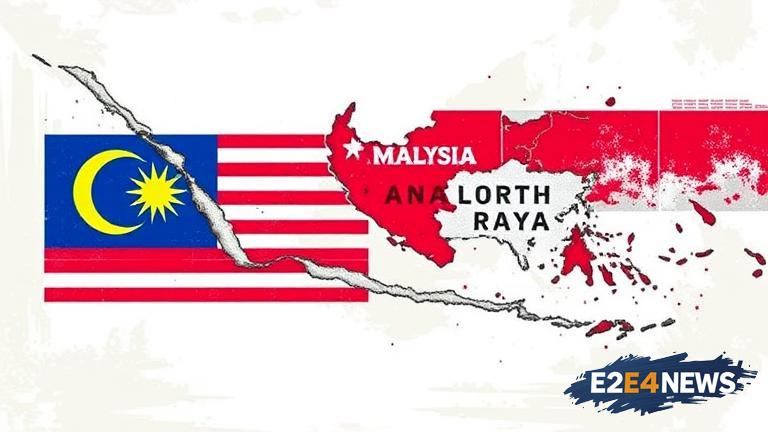The Malaysia-Indonesia border dispute has been a longstanding issue, with both countries claiming ownership of the Ambalat region. Despite recent tensions, officials from both countries have confirmed that the talks remain on track. The Ambalat region is a lucrative area, rich in oil and gas reserves, making it a highly contested territory. The dispute began in the 1990s, with both countries claiming historical and cultural ties to the region. Over the years, there have been numerous attempts to resolve the issue, but a mutually acceptable solution has yet to be found. The current talks are seen as a positive step towards resolving the dispute, with both countries committed to finding a peaceful solution. The Malaysian government has stated that it is committed to maintaining good relations with Indonesia, despite the ongoing dispute. Indonesian officials have also expressed their commitment to resolving the issue through diplomatic means. The talks are being facilitated by a third-party mediator, who is helping to facilitate discussions between the two countries. The mediator has reported that progress is being made, with both countries engaging in constructive dialogue. However, the road to a resolution is expected to be long and challenging, with many complex issues to be addressed. The dispute has significant implications for the region, with the potential to impact trade and economic relations between the two countries. The international community is watching the situation closely, with many calling for a peaceful resolution to the dispute. The United Nations has offered its support for the talks, urging both countries to continue their efforts to find a mutually acceptable solution. The European Union has also expressed its support for the talks, highlighting the importance of resolving the dispute through diplomatic means. The Association of Southeast Asian Nations (ASEAN) has also played a key role in facilitating the talks, providing a platform for both countries to engage in dialogue. Despite the challenges ahead, officials from both countries remain optimistic about the prospects for a resolution. The talks are expected to continue in the coming months, with both countries working towards a peaceful and mutually beneficial solution. The outcome of the talks will have significant implications for the region, with the potential to impact trade, economic relations, and regional stability. The international community will be watching the situation closely, as the talks progress. In conclusion, the Malaysia-Indonesia border dispute is a complex and challenging issue, but the ongoing talks offer a glimmer of hope for a peaceful resolution. With the commitment of both countries to finding a mutually acceptable solution, there is a possibility that the dispute can be resolved through diplomatic means.
